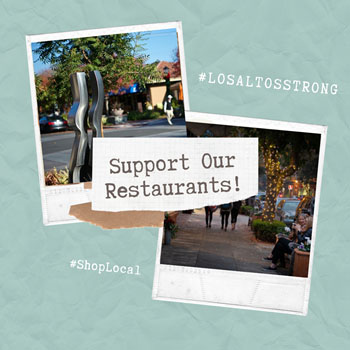By Aaron Neufeld, OD, FAAO

April 15, 2020
COVID-19 has changed nearly everything about our society, including the plans most of us had for our practices. Here is how the crisis is impacting my financial and growth plans.
Optimistic, But a Pause In Growth
Before the crisis, our business plans revolved around continual expansion and growth of the practice. We had multiple marketing plans both through online and print mailing efforts to get new patients through our doors. Additionally, our referrals for medical eyecare and specialty contact lenses had begun increasing through relationships established with a few new practitioners in the area.
Every year since I bought my practice in 2016, we have seen a slow and steady annual increase in our production and net income by between 2-4 percent. We were hoping that this year would be a continuation of that trend, such that we would be busy enough to increase doctor hours. Although current events have put a damper on that momentum, we are still having a positive outlook for when business resumes.

Message posted to Dr. Neufeld’s practice social media accounts when the California shelter in place mandate began. It has since been extended through the month of April. He made a point of letting patients know the services he is still providing.
Maximizing Cash Flow
COVID-19 and California’s subsequent “Shelter in Place” act has forced all optometry offices in our state to only provide essential services such as emergency eyecare and prescription pick-ups.
This has caused many offices to suddenly shut down and layoff their employees. I decided against this, instead running on a rotating “skeleton” crew. Obviously, with this new set up, cash flow is much lower.
To survive these sudden changes, and ensure that all my employees can still make their wages without furloughing them/having them apply for unemployment, we adopted these three measures:
a) Fulfilling contact lens/glasses prescriptions through curbside pickup or home delivery
b) Telemedicine exams and telephone triaging
c) Emergency services
We are hoping these measures can help weather the storm. We have been approaching the situation week by week.
This is the time when practice owners need to free up as much as cash flow as possible by deferring payments and analyzing invoices.
a) Talk with vendors and equipment leasing/financing companies about holding bills that are due.
b) Audit invoices – Perform a big audit of your billings to see if there is any cash left on the table from either being over-billed or having account credits that have not yet been applied.

A social media post from Dr. Neufeld’s practice asking the community to support local restaurants in getting takeout and delivery during the shutdown of small businesses due to the pandemic.
Many owners are also coming to the harsh realization that they are not financially ready for an emergency. Here are a few items to look at if you are strapped for cash or just looking to be better prepared:
Cash Reserves: Take a good look at your cash reserve situation. A situation like this is a good indicator of how long your cash reserves can last. If you did not have any cash reserves before this crisis happened it may be time to implement a system, such as Profit First, to ensure that cash reserves are not a problem in the future.
Another important thing is to analyze the amount of cash reserves needed. There is no right answer to this, however most business owners agree that at least 2-3 months should be saved in an easily accessible account.
Line of credit: If you are in need of cash, look at opening a line of credit before taking any loan. A business line of credit allows you to “take money as you need it” rather than taking out a loan with a set dollar amount. Business lines of credit also tend to have better terms and lower rates.
Loans from banks with no pre-payment penalty: If cash reserves and a line of credit are not options, look at loans from local banks, preferably loans that do not have pre-payment penalties. The idea here is that you can use the funds necessary from the loan, and once the crisis blows over and you have cash flow again, you can pay back the loan ASAP and avoid having additional debt against your practice.
SBA loans: Although SBA loans are usually recommended as a last resort, due to
Other Articles to Explore
associated fees and stricter terms, they may need to be an option. Fortunately, the government has been hard at work creating small business relief programs.
Utilize the CARES Act
The government has allocated billions of dollars toward small business relief. Ensure that you have applied for the Economic Injury Disaster Loan and Payment Protection Plan and check frequently for updates since new information comes through from the government nearly every day.
Also keep in mind that amounts not forgiven from these aspects of the CARES Act will be part of SBA loans that have 1 percent interest and no pre-payment penalty. Be sure to utilize these additional funds wisely. Finally, if you have an existing SBA loan, the government is offering deferment and payment of these loans for the next six months, so factor this into the equation as well.
Refining Operations of a Skeleton Staff
Our “skeleton crew” rotation has us utilizing one staff member at a time (along with myself). The rotation is scheduled for each staff member to work a half day. This minimizes exposure for each staff member and also ensures that they still get some hours even though we are operating at a low threshold. Staff may use vacation during their off time. This is a much better option than filing for unemployment.
We are also filling outside prescriptions for patients whose optometrists have decided to close completely and indefinitely. This helps out those patients in need and gives us more revenue.
For the future, we have been pre-appointing, but also notifying patients that these appointments may need to be pushed back depending on how the crisis progresses.
I am trying to avoid laying off staff at all costs. My staff’s loyalty and productivity are vital to my practice’s lifeblood, and showing them that I can care for them during this crisis is important to me. Before the crisis, nearly everyday we had a full schedule, booked out at least 1-2 weeks. Now, we see a couple emergency patients a day. So, volume is a mere fraction of what it was before, but we are hopeful we will rebound strongly when we are once again open for business.
 Aaron Neufeld, OD, FAAO, is the owner of Los Altos Optometric Group in Los Altos, Calif., and co-founder of ODs on Finance. To contact: aneufeldod@gmail.com
Aaron Neufeld, OD, FAAO, is the owner of Los Altos Optometric Group in Los Altos, Calif., and co-founder of ODs on Finance. To contact: aneufeldod@gmail.com

























